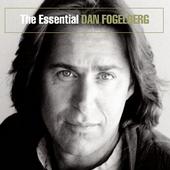Guitarist and singer/songwriter Dan Fogelberg was born in the little town of Peoria, Illinois in 1951. After some years of avoiding piano practice as a child, his grandfather passed down to him an old Hawaiian slide guitar which inspired in Fogelberg the natural gift he would later use to soothe the world. While studying at the University of Illinois at Urbana-Champaign, Fogelberg found bliss in performing in local coffee houses and eventually dropped out to relocate to LA where, in 1971, he signed a record deal with Columbia Records. Fogelberg’s debut album, Home Free, was released the next year and showcased the artist’s beautifully modest sound and angelic voice. His next album, 1974’s Souvenirs, went double platinum on the success of country-rock hit “Part of the Plan.†By the mid 1970s, with a few more successful albums behind him and a vast and loyal base of fans, Fogelberg began collaborating with jazz flutist Tim Weisberg for what would become 1978’s Twin Sons of Different Mothers; the album was a huge success and featured the hit single “The Power of Gold.†The next two years saw Fogelberg performing a sellout show at New York’s Carnegie Hall (a longtime personal career goal of his) and releasing 1980’s platinum-selling Phoenix. Staying true to his vision, Fogelberg surprised many by delaying the release of his sixth studio album, The Innocent Age, to write and record more material and expand the album, an effective and momentous idea which, upon its 1981 release, resulted in four hit singles – "Same Old Lang Syne," "Run for the Roses," "Hard to Say" and "Leader of the Band" (this last song a tribute to his father.) Fogelberg continued to release a steady stream of incredible albums over the next several years, seeing the charting of 1983’s Greatest Hits’ “Missing You†and “Make Love Stay†as well as “The Language of Love†and “Believe in Me†from 1984’s Windows and Walls. In 1997, Columbia released the retrospective Portrait: The Music of Dan Fogelberg from 1972-1997, and in 2003 Fogelberg released what would be the last of his original recordings, the aptly titled Full Circle. Dan Fogelberg died of prostate cancer in December 2007, leaving behind him a magnificent body of work and a lasting message of peace.
